Edubuntu Primary School Outreach Program
The primary school outreach program is one of the initiatives started by the Laare Community Technology Centre to spread the centreís impact in the local community. The establishment of the primary school outreach program is due to the realization that there is need to expose members of the Laare community to computers and Information Technology from the earliest age possible. The aim of the program, therefore, is that school children from as early as Standard One (first grade) get a combination of basic computer lessons and a chance to play with the computers. Before the start of this program none of the primary schools in Laare had a single computer. Borrowing from MITís Imara programís similar initiative in Fiji in 2006, laptops loaded with Edubuntu were sourced from MIT and Dell. Edubuntu is a complete Linux-based based operating system loaded with an open source educational suite of programs.
Implementation of the Program
Equipment
In the fall of 2006 laptop donations were arranged by the Imara program at the MIT department of Computer Science and Artificial Intelligence (CSAIL). A combination of earlier funding from Google and a matching program by Dell helped purchase four laptops. Four other used laptops were donated by CSAIL and MIT libraries. Members of Imara in Cambridge prepared all the laptops for shipping to Kenya. The old laptops were cleaned and all the laptops were installed with the Edubuntu OS and branded with Imaraís signage.
Introducing the Primary Schools
In January 2007, two MIT graduate students (Shawntel Hines and Aisha Walcott) travelled to Kenya on fellowship sponsored by the MIT Public Service Center. Part of their fellowship work involved launching the laptop program in eight selected primary schools. Aisha and Shawntel had an information session with primary school heads from the area and visited all the schools in person. These schools are within a 10 km (6 mile) radius from the Laare Community Technology Centre.
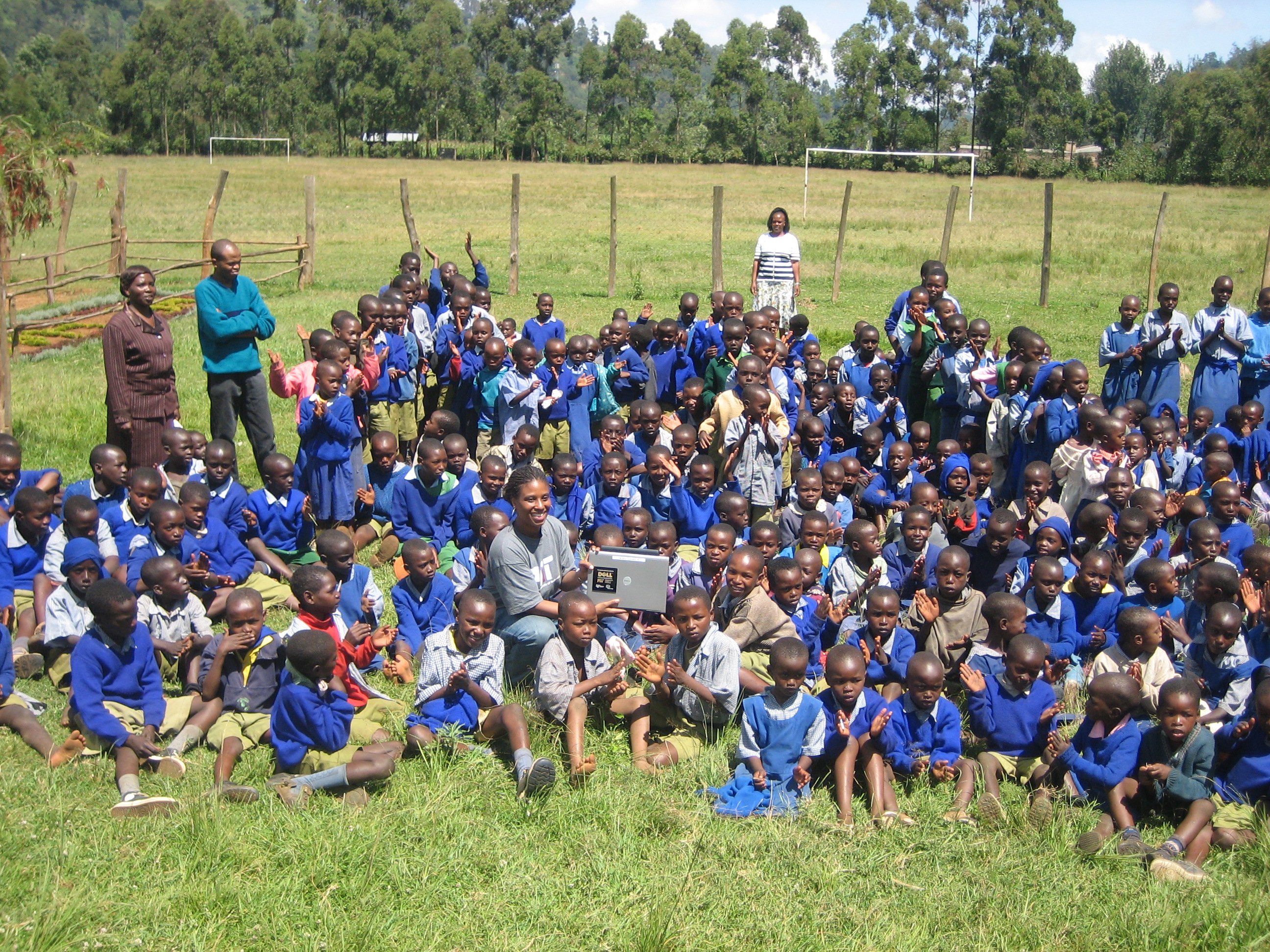
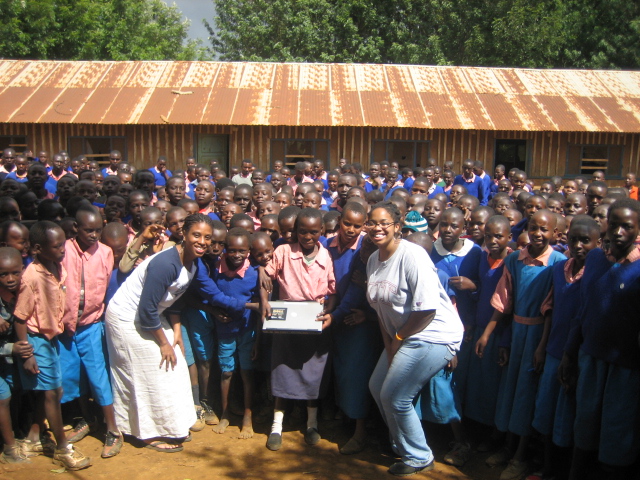
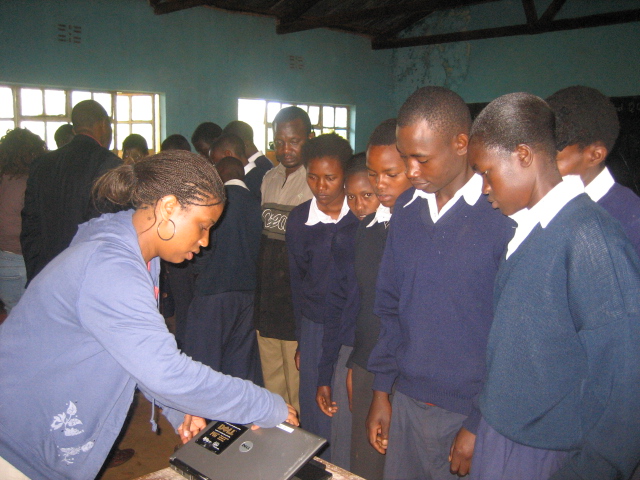
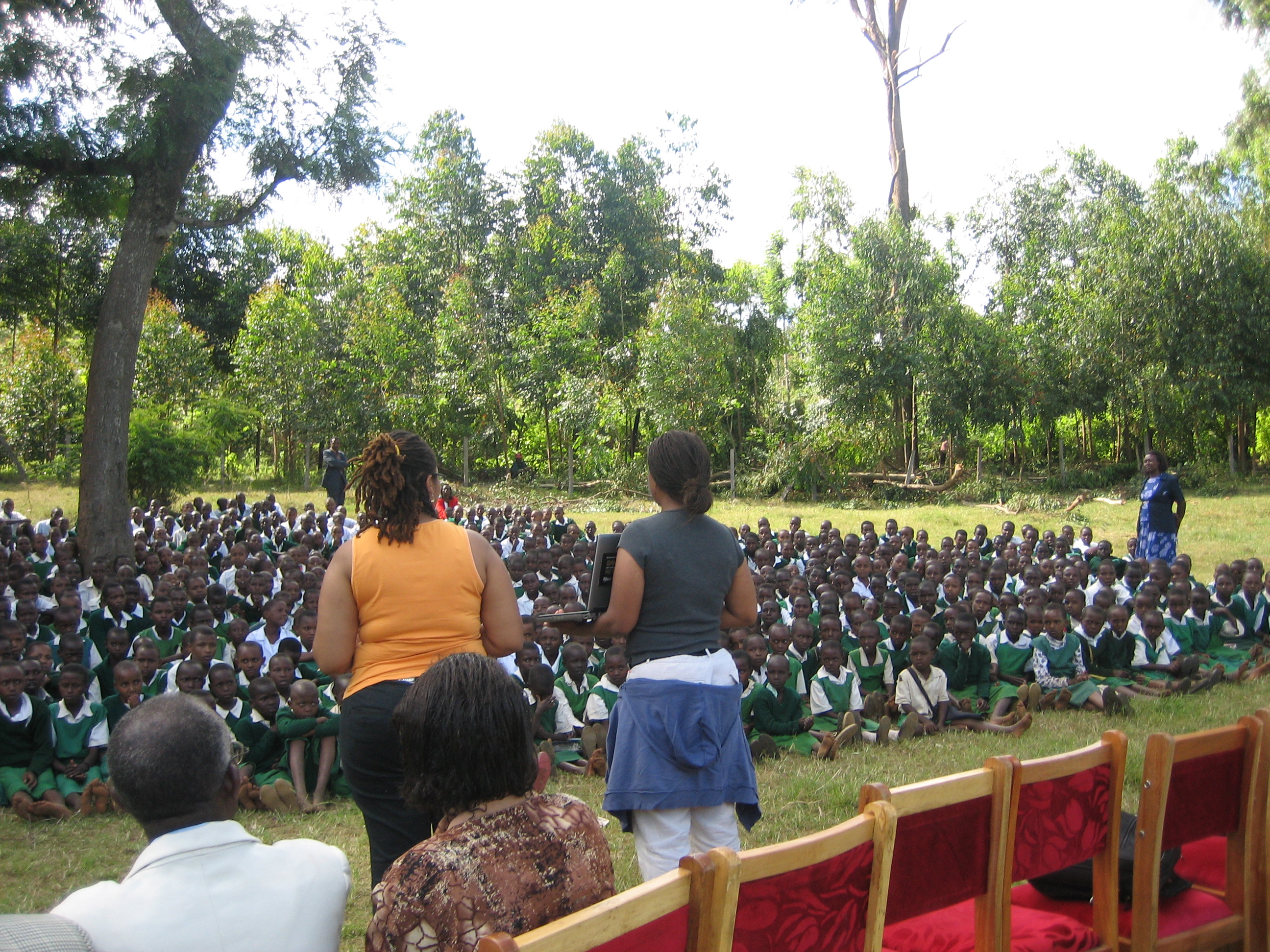
One of the outcomes of these sessions and visits was a realization that most of the teachers in these schools had almost no prior exposure at all to computers and would, thus, be unable to implement Edubuntu program as earlier envisaged. It was, therefore, decided that teachers from the eight schools would undergo basic training before their schools could be issued with the laptops. The Laare Community Technology Centre would offer this training to the teachers.
Teacher Training by LACOTEC
The teachersí training at Lacotec first involved an introduction to the basic workings of personal computer operating systems (Edubuntu and Microsoft Windows were used as examples). The training then covered the use of basic applications software such as word processing, spreadsheets, database management systems and presentations software.
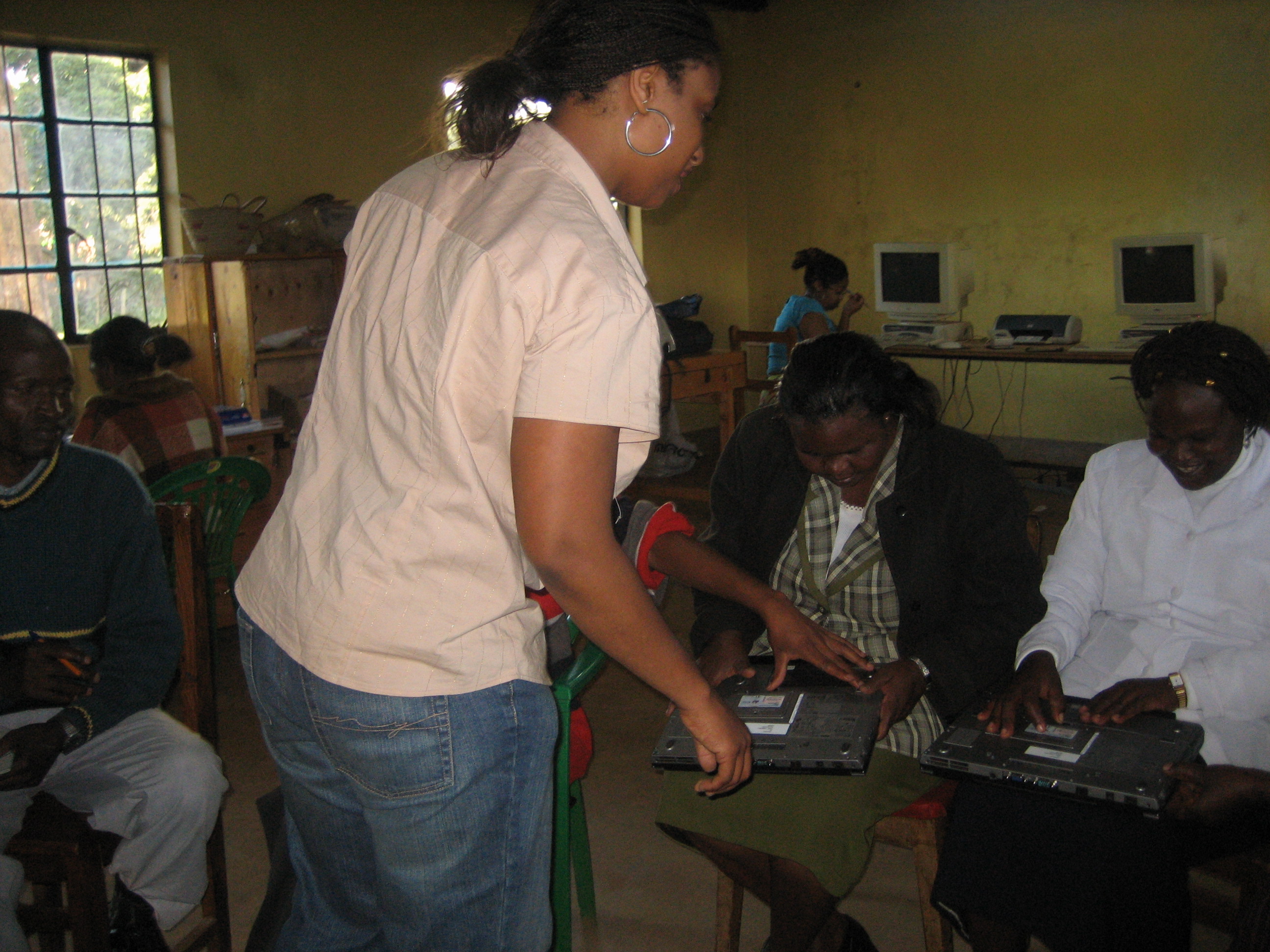
Because of the schoolsí academic calendar which means teachers are only available for a few hours a week, their training took six months to complete instead of the expected three.
Presentation of laptops
In July 2007, Lacotecís founder, Eric Mibuari (MIT Ď06) travelled to Kenya and oversaw the completion of the teacher training program. At the end of July he conducted a ceremony to officially present the laptops to the primary school teachers and launch the Edubuntu outreach program.
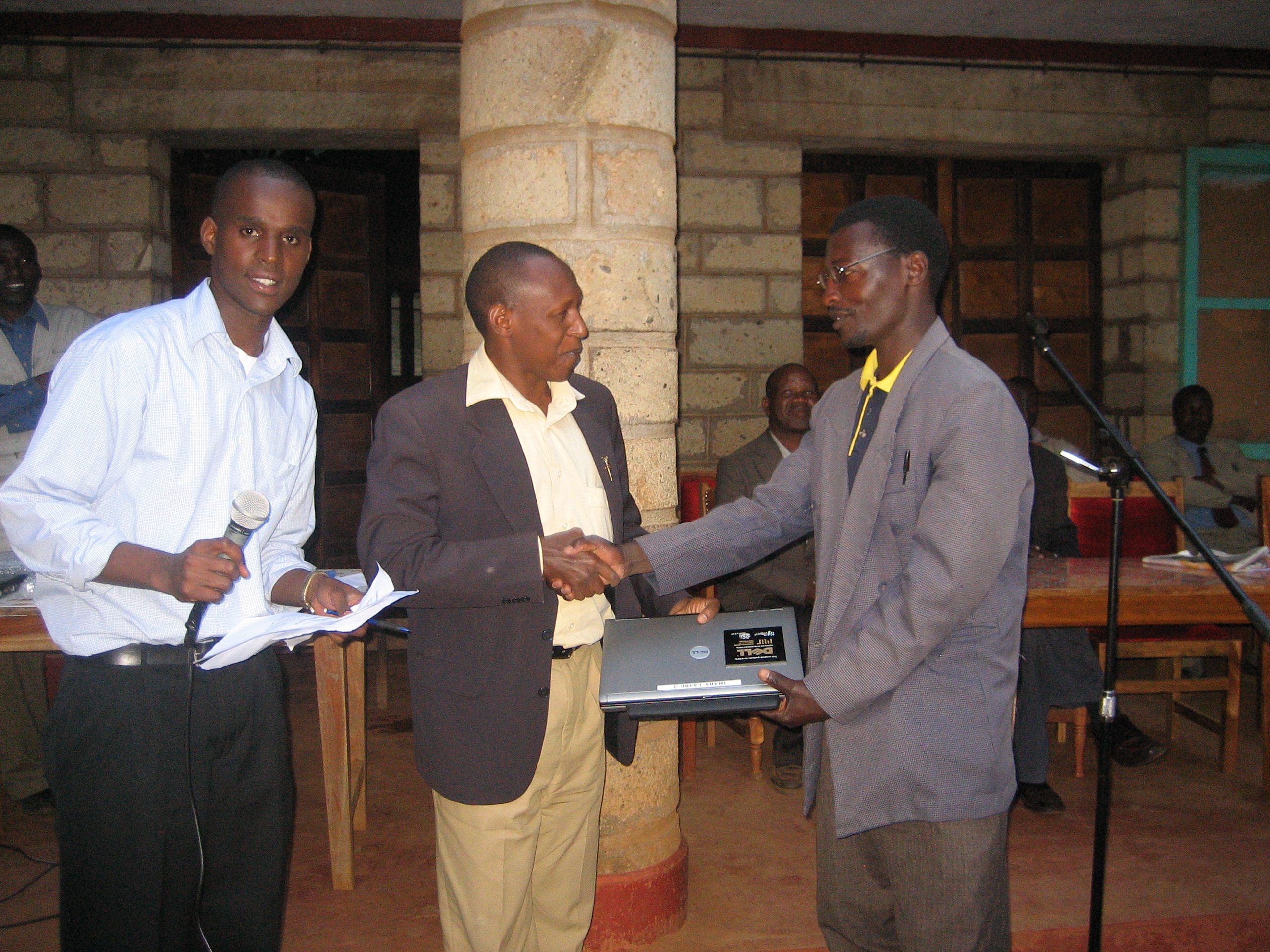
This presentation of laptops was accompanied by an agreement signed between the schools, the Laare Community Technology Centre and the sponsoring institutions such as MIT. This agreement states in broad terms how the laptops are to be used by the schools, ownership of the laptops (they are owned by Lacotec) and the responsibilities of the head teachers of the beneficiary schools including a requirement to update the donating institutions on the progress of the initiative.
Impact
The impact of this program cannot be determined yet. The schools have only had the laptops for one month (as of the time of this report Ė September 2007). However some of the expected impact includes:
- * Increased interest in IT and computers by the students and teachers in the beneficiary schools. This might be reflected, for example, by more students and teachers from these schools visiting and making use of the facilities at Lacotec.
- * Acquisition of computers by private schools. There are about four private primary schools in the Laare area. Only one of these schools has computers. It is expected that the other schools will provide computers in their schools to "offer more value" to their students.
- * Other impact is expected to be gradual and might include an increased number of computer purchases by some of the parents and private citizens who can afford them and the introduction of computers in local businesses and other organizations
Future
In future, the Laare Community Technology Centre would like to:
1. Provide a computer education curriculum to the schools. At the moment the program is on laissez-faire implementation by the schools. Lacotec is however, working with MIT to develop a curriculum centered around student projects which can be used by the schools
2. Evaluate impact of program at the school level and on a community wide level.
3. Spread the program to more schools.
Sponsors
Lacotec would like to profoundly thank the following organizations that have made this Edubuntu Primary School Outreach program possible:
- 1. Imara program at the MIT Computer Science and Artificial Intelligence Lab
- 2. MIT Public Service Center
- 3. Chancellorís office at MIT
- 4. MIT Libraries
- 5. Dell
- 6. Google